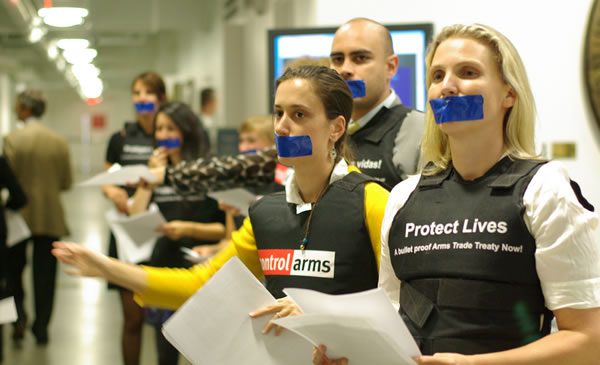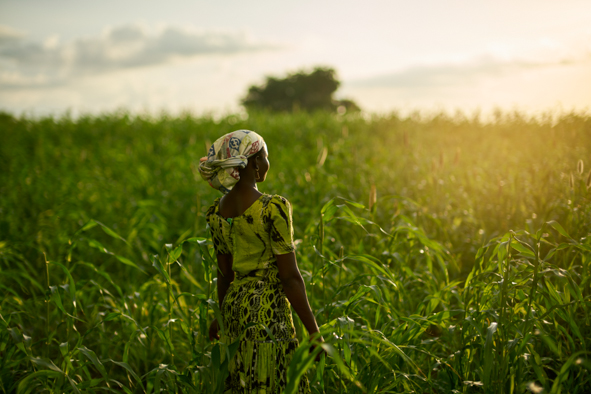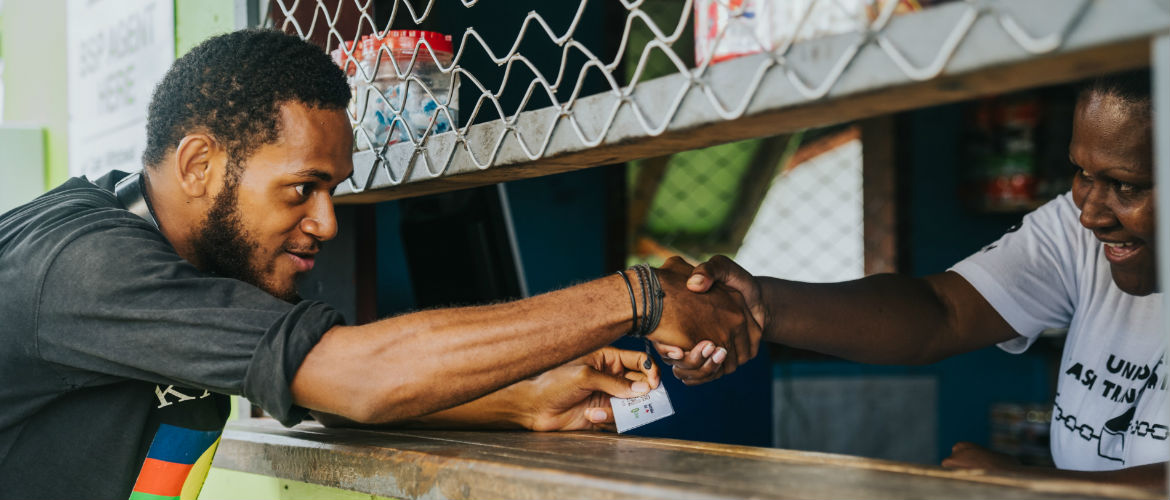On Friday 16 July 2010, the Control Arms alliance, which includes Oxfam, were given an opportunity to present their position on the elements of the Arms Trade Treaty (ATT), to nations of the world involved in negotiations. Speakers reinforced that the overall objective of an ATT remained reducing the human impact of a poorly regulated arms trade. It was argued that there is an ‘overwhelming humanitarian imperative’ to negotiate a strong and robust ATT bolstered by strong language, such as ‘shall not authorize’ or similar, rather than weak language such as ‘taking into account’ and ‘wherever possible’. The scope of equipment covered by an ATT needs to go beyond a 7 + 1 model – the seven categories of weapons included in the UN Register of Conventional Arms, plus small arms and light weapons.
Most critically, this framework does not cover ammunition, or a number of other weapons which are frequently end up in the hands of non-state actors and are used to commit to perpetrate violations of human rights law and international humanitarian law. Control Arms therefore argue for a very broad scope including all conventional arms, small arms and light weapons, conventional ammunition and explosives, internal security weapons, components, expertise and equipment, and dual use items that can have a military, security and police application.
Control Arms argues for the inclusion of imports, exports, re-exports, temporary transfers, transhipments, in transit and transhipment, re-transfers and transportation in the scope of an ATT. Types of transfers to be covered should include all sales, gifts, loans, leases and aid. All brokering should be covered and licensed on the basis on of criteria including import and export controls. In addition to principles outlined by the Chair in his paper delivered on 14 July, speakers suggested the inclusion of elements relating to gender based violence, corruption and victim assistance.


 Doris*, daughter, 5; Pamila*, 2. Christina grows maize and she was shown how to make compost as part of the CRAFS (Climate Resilient Agriculture and Food Systems) programme.
Doris*, daughter, 5; Pamila*, 2. Christina grows maize and she was shown how to make compost as part of the CRAFS (Climate Resilient Agriculture and Food Systems) programme.
